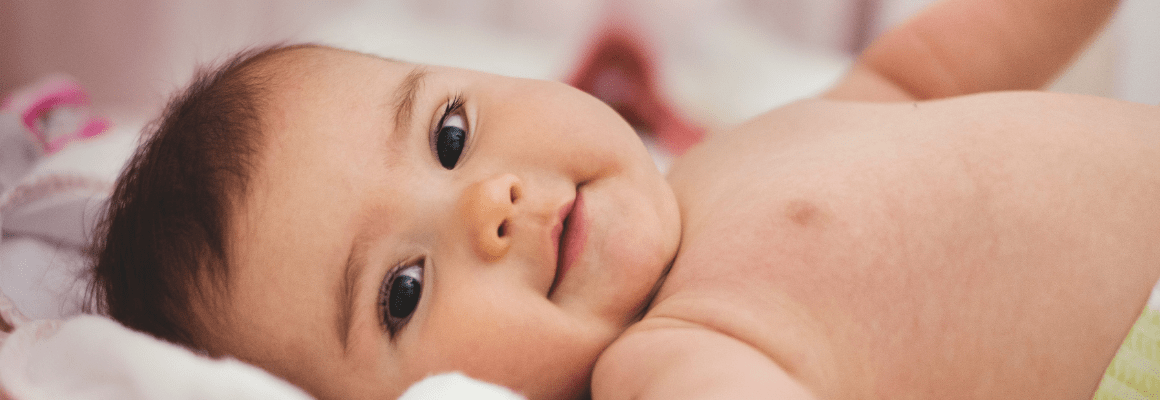Is itchy skin keeping you up at night? Unfortunately, the urge to scratch can feel more vigorous during the night, making it difficult to get a decent night’s rest. Your body needs at least 7-8 hours of sleep each night for overall health and well-being. But how is this possible when itching skin has you tossing, turning, and trying not to scratch?
In this blog, we’ll go over some natural remedies that can help soothe itching and help you get the uninterrupted shut-eye you deserve. Read on to learn about our best tips to improve your sleeping pattern and live a happier and healthier life.
Why Do I Have Itchy Skin?
Let’s first discuss some of the reasons why you may be experiencing itchy skin in the first place. Often, the root of the problem is dry skin. Some people are born with naturally dry skin, while for others, dry skin is exacerbated by a variety of external factors like the weather, age, and health-related issues like eczema, psoriasis, and even cancer. Thankfully, dry skin is usually just a temporary problem that can be fixed with a combination of lifestyle changes, prevention measures, and an abundance of natural creams, lotion, and moisturizers.
Many people note that their skin becomes drier, especially during the winter months when humidity levels are lower, and it's colder.
If you’ve ever felt itchier after taking a long, hot shower, here’s why: prolonged exposure to water could also be a cause of dry skin. Hot water tends to further dry out the skin by stripping the skin of its natural protective oils. For this reason, people who work in jobs like catering, cooking, hairdressing, and nursing are more likely to suffer from dry skin.
Another cause for dry skin could be age. As we age, our pores naturally produce less oil. Less oil means drier skin which leads to increased itchiness. Research says that 50% of adults over the age of 40 suffer from dry skin.
Pregnancy can also be a cause of dry skin. As the body stretches to accommodate a growing baby, the skin naturally loses elasticity and moisture. Plus, there are plenty of hormone changes during pregnancy that can lead to dry skin. While pregnant women typically experience dry skin and itching on their stomachs, the itching sensation can be felt anywhere on the body, including on the arms, breasts, and thighs.
In addition to dry skin, itchy skin can be a result of allergies. Many people experience a heightened itching sensation after their skin comes into contact with triggers. Unfortunately, plenty of triggers are everyday household items that the skin may come into contact with. These include items like zippers, belt buckles, cell phones, and jewelry. An allergic reaction to the chemicals and ingredients found in beauty and cosmetic products can also lead to itchy skin. Sadly, many skincare products out there contain harsh toxins that are not good for your skin or our planet. Because of this, we highly encourage you to carefully read labels or speak to your dr or dermatologist before trying out a new product.
Lastly, textile dermatitis could be the cause of your itchy skin. As the clothes we wear come into direct contact with our bodies, it makes sense that this could lead to an adverse reaction. Some of the most irritating fabrics for sensitive skin include wool, polyester, nylon, spandex, and latex.
If you are unsure why you are experiencing itching over your body, be sure to speak to your doctor or dermatologist. They will be able to help you determine the exact cause of your itchy skin and help you find an appropriate solution.
Eczema and Itchy SkinEczema is an inflammatory skin condition that affects roughly 32 million people globally, characterized by patches of red rashes, flakiness, scaliness, and of course, itchiness. People with eczema have a damaged skin barrier that has trouble retaining moisture. The skin's inability to hold water is what leads to dry skin and the accompanying itchiness. While eczema's exact cause is unknown, research says it is linked to a combination of genetic and environmental factors. Some of the most common eczema triggers include sweat, stress, clothing irritants, pet fur, extreme temperatures, and chemicals found in beauty products and other household items.
Understanding The Itch-Scratch Cycle
If you suffer from itchy skin, you likely know the effects of the itch-scratch cycle firsthand. You probably also know that scratching is the worst thing you can do to relieve itching skin. It ultimately sets the itch-scratch process in motion, leading to even more significant problems like increased inflammation, damaged skin, bleeding, and possibly even infection. Not to mention, you will feel even itchier than before! The National Eczema Association (NEA) says that itch and pain have a yin-yang relationship. When you scratch your skin and subject it to low-grade pain, the itching temporarily subsides.
Unfortunately, no matter what anyone says, it can be challenging to break the itch-scratch cycle. Doing so requires a lot of willpower, effort, and determination. But with the help of natural lotion and scratch-prevention methods, you can do it!
If you think relentless scratching has led to infection, speak to your doctor or dermatologist as soon as possible.
Why Does Itching Get Worse at Night?
If you’ve noticed that your skin tends to feel itchier at night, it’s not just in your imagination. But why does itching feel worse at night? There are a few possible reasons to explain the link. First of all, many people scratch unknowingly in their sleep, which aggravates the itching sensation and can lead to increased irritation. It can even set the itch-scratch cycle in motion. Temperature can also be related to an increased itching sensation, particularly for eczema-related itching. As body temperature and eczema are closely related, many people wake up feeling overheated and itchy in the middle of the night. Finally, a decreased melatonin secretion and reduced sebum production can worsen skin dryness and heighten skin itchiness.
The Effects of Sleep Problems
The body needs sleep to function correctly. For overall health and well-being, we should aim to get at least 7-8 hours of sleep every night. Unfortunately, the urge to itch can make this difficult as we spend most of the night tossing and turning. The long-term negative consequences of lack of sleep are very real. Up to 80% of children and 87% of adults with eczema experience insomnia and higher fatigue rates. Lack of sleep can also lead to problems like psychosocial and economic burdens. In adults, bad sleeping habits are linked to a greater number of sick days and doctor visits. It can also lead to greater numbers of psychological disorders and workplace accidents.
In children, interrupted sleep can affect cognitive development and lead to learning disabilities, impulsivity, and daytime behavioral problems. In addition to higher levels of anxiety and depression, pediatric insomnia is also associated with autism and attention-deficit/hyperactivity disorder. Children with poor sleeping patterns may also experience higher levels of anxiety and depression.
Tips for Sleeping Better at Night
Learning to control itching at night is an essential part of improving sleeping patterns and leading a healthier and happier life. Here are some tips how to sleep with itchy skin at night:
Adjust Temperature
As mentioned earlier, temperature affects itching. Because of this, we recommend adjusting the thermostat before bed to help regulate your body temperature. While everybody is different, in general, around 3-5 degrees is a good range. You may also want to invest in cooling pillows or use fewer blankets to prevent overheating.
Wear Comfortable Sleepwear
Wearing the right sleepwear can make it easier to get a comfortable and restful sleep. It can also serve as a scratch prevention measure. The most comfortable fabric for soothing relief is soft, breathable, and free from chemicals or dyes. That’s why we love Remedywear™. Made with eco-friendly TENCEL and embedded with anti-inflammatory zinc, Remedywear™ offers full-body protection and boosts the healing process. We recommend:
Remedwear Long Shirt for Kids–offers itch relief and gentle protection on the arms, chest, stomach, and back.
Remedywear Long Shirt for Adults–features antibacterial and antimicrobial properties that work to heal itchy skin like a dream.
Remedywear Pants for Kids–stretchy and form-fitting, these breathable pants protect itchy skin on the legs.
Remedywear Pants for Adults–enjoy the moisture-wicking properties of these legging-like pants that help prevent sweaty irritation or chafing.
Try Wet Wrap Therapy
Wet wrap therapy is an effective at-home treatment that can help hydrate dry skin and provide a much-needed boost of moisture. The process is simple: start by applying a natural moisturizer to the itchy area. Then cover with a damp piece of clothing like these Remedywear™ Eczema Sleeves. To lock in the moisture and allow the emollient to better permeate the skin, add a dry layer over the top. We recommend leaving the wet wraps on overnight or for a minimum of two hours. Once you remove the wet wraps, apply another layer of moisturizer to the patch of itchy skin.
Moisturize Before Bed
Keeping dry skin hydrated is an essential step in combating itchiness. While many people may moisturize in the morning or perhaps throughout the day, the moisturizer's effects have likely worn off by the evening. Replenish dry skin by applying a layer before bed. We recommend using natural creams, lotion, and moisturizers whenever possible to reduce your skin's risk of reacting negatively to a toxin or chemical found in a skincare product. Supporting clean beauty is not only better for your skin health, but it’s also better for the health of our planet. We love this Organic Manuka Skin Soothing Cream. Made with just six ingredients, including the Manuka honey, it's renowned for its antibacterial and anti-inflammatory properties. Because it’s completely natural, it’s safe and effective to use on little ones and adults alike. Kids love its soft buttery texture and sweet honey smell.
If you struggle specifically with an itchy chest, then check out What to do About Itchy Skin on the Chest.










